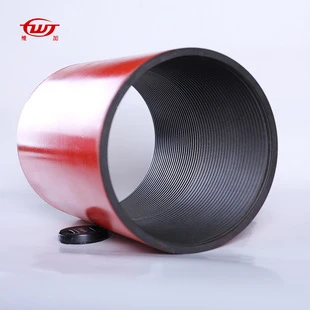- Afrikaans
- Albanian
- Amharic
- Arabic
- Armenian
- Azerbaijani
- Basque
- Belarusian
- Bengali
- Bosnian
- Bulgarian
- Catalan
- Cebuano
- Corsican
- Croatian
- Czech
- Danish
- Dutch
- English
- Esperanto
- Estonian
- Finnish
- French
- Frisian
- Galician
- Georgian
- German
- Greek
- Gujarati
- Haitian Creole
- hausa
- hawaiian
- Hebrew
- Hindi
- Miao
- Hungarian
- Icelandic
- igbo
- Indonesian
- irish
- Italian
- Japanese
- Javanese
- Kannada
- kazakh
- Khmer
- Rwandese
- Korean
- Kurdish
- Kyrgyz
- Lao
- Latin
- Latvian
- Lithuanian
- Luxembourgish
- Macedonian
- Malgashi
- Malay
- Malayalam
- Maltese
- Maori
- Marathi
- Mongolian
- Myanmar
- Nepali
- Norwegian
- Norwegian
- Occitan
- Pashto
- Persian
- Polish
- Portuguese
- Punjabi
- Romanian
- Russian
- Samoan
- Scottish Gaelic
- Serbian
- Sesotho
- Shona
- Sindhi
- Sinhala
- Slovak
- Slovenian
- Somali
- Spanish
- Sundanese
- Swahili
- Swedish
- Tagalog
- Tajik
- Tamil
- Tatar
- Telugu
- Thai
- Turkish
- Turkmen
- Ukrainian
- Urdu
- Uighur
- Uzbek
- Vietnamese
- Welsh
- Bantu
- Yiddish
- Yoruba
- Zulu
Casing Collar Techniques for Enhanced Well Integrity and Performance Optimization
Understanding Casing Collars in Oil and Gas Operations
In the oil and gas industry, the importance of efficient and reliable drilling operations cannot be overstated. Among the myriad components that contribute to successful drilling, casing collars play a critical role. These specialized fittings are essential for ensuring the integrity and functionality of the casing strings used to stabilize boreholes during and after drilling.
Casing collars are typically made from strong materials, such as steel, designed to withstand the high pressures and temperatures encountered deep underground. They serve multiple purposes throughout the drilling process, with their primary function being to provide a secure connection between individual casing sections. By enabling segments of casing to be joined together, casing collars help maintain the structural integrity of the borehole, preventing collapses or the influx of unwanted fluids.
One of the most common types of casing collars is the coupling collar, which is used to couple two lengths of casing
. This collar features internal threads that allow it to be screwed onto the ends of adjacent casing joints. The threaded design ensures a tight seal, which is crucial for maintaining the pressure in the borehole and preventing fluid migration. Additionally, casing collars are often equipped with various features such as stops or shoulder designs to enhance their functionality.casing collar

Beyond providing structural support, casing collars also play a significant role in the overall drilling efficiency. Their design can influence the ease of handling and installation, which directly impacts the speed at which drilling operations can progress. In a highly competitive market, any improvements in efficiency can yield substantial cost savings, making the choice of casing collars an important consideration for drilling engineers and project managers.
Furthermore, casing collars are essential for well completion processes. Once drilling is complete, they help facilitate the installation of production tubing, which is necessary for extracting oil and gas from the reservoir. The secure connection provided by casing collars ensures that the production tubing remains stable under varying pressure conditions, contributing to the longevity and reliability of the well.
It is also essential to note the advancements in casing collar technology. With the ongoing evolution of drilling techniques and materials science, newer designs are emerging that offer enhanced performance. For instance, some modern collars are designed to minimize stress concentrations, reducing the risk of failure during operation. Moreover, the incorporation of innovative sealing mechanisms can improve the integrity of the connections, thereby boosting the overall safety of the drilling operation.
In conclusion, casing collars are a vital component in oil and gas drilling operations. Their role in connecting casing sections ensures the structural integrity of boreholes and facilitates efficient drilling and completion processes. As technology advances, the design and functionality of casing collars continue to improve, contributing to more efficient and safer drilling practices. For drilling engineers, understanding the importance of casing collars is crucial for optimizing operations and maximizing the success of their projects in the challenging oil and gas sector.
-
Tubing Pup Joints: Essential Components for Oil and Gas OperationsNewsJul.10,2025
-
Pup Joints: Essential Components for Reliable Drilling OperationsNewsJul.10,2025
-
Pipe Couplings: Connecting Your World EfficientlyNewsJul.10,2025
-
Mastering Oilfield Operations with Quality Tubing and CasingNewsJul.10,2025
-
High-Quality Casing Couplings for Every NeedNewsJul.10,2025
-
Boost Your Drilling Efficiency with Premium Crossover Tools & Seating NipplesNewsJul.10,2025







